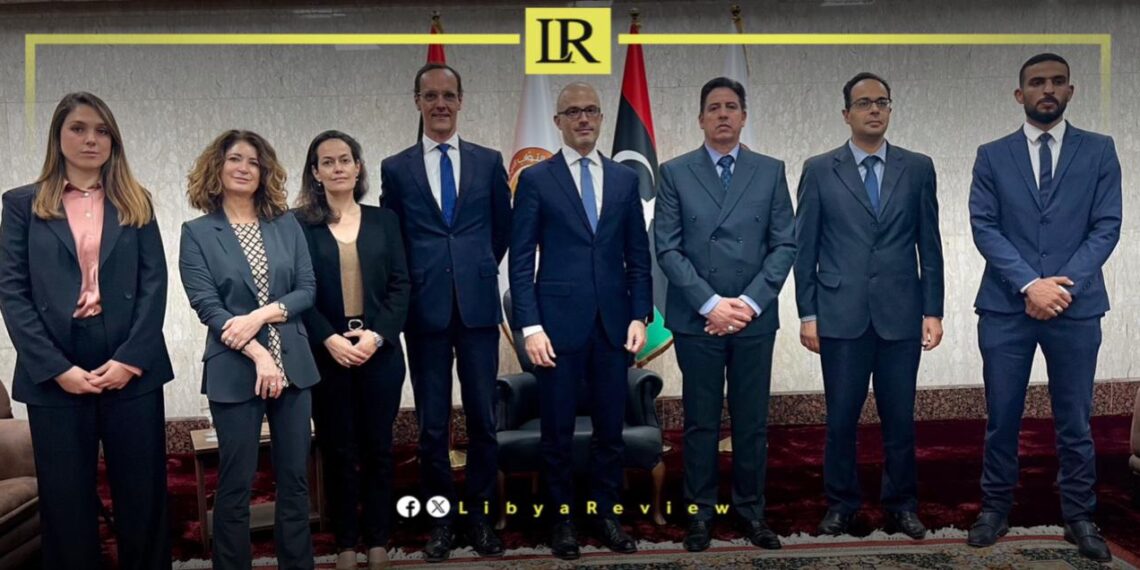Nicola Orlando, the European Union Ambassador to Libya, voiced the EU member states’ concerns regarding the ongoing situation in Libya, particularly regarding foreign interventions.
The statement was made during a meeting with Youssef al-Aqouri, the head of the Foreign Affairs Committee of the Libyan House of Representatives, on Monday at the House’s headquarters in Benghazi.
Ambassador Orlando emphasised the European Union’s continued support for Libya, especially in capacity building. He also reiterated the EU’s commitment to supporting the United Nations mission in the country.
The discussions at the meeting covered the latest political developments in Libya and explored cooperation programs between both sides, as well as the operations of the United Nations Support Mission in Libya (UNSMIL).
Al-Aqouri highlighted the crucial role of the European Union in supporting Libya’s stability. He pointed out a close link between the security and stability of Libya and Europe, stressing the necessity for all foreign forces and mercenaries to leave Libyan territories to achieve stability in the region.
He also called for greater coordination on EU support programs to maximize their benefits and renewed the Foreign Affairs Committee’s interest in the EU programs aimed at securing borders.
Regarding migration issues, the head of the Foreign Affairs Committee stressed the importance of joint coordination between Libya and the European Union to manage unprecedented migration flows, which pose a significant challenge for all involved.
Libya has been in chaos since a NATO-backed uprising toppled longtime leader Muammar Gaddafi in 2011. The county has for years been split between rival administrations.
Libya’s economy, heavily reliant on oil, has suffered due to the ongoing conflict. The instability has led to fluctuations in oil production and prices, impacting the global oil market and Libya’s economy.
The conflict has led to a significant humanitarian crisis in Libya, with thousands of people killed, and many more displaced. Migrants and refugees using Libya as a transit point to Europe have also faced dire conditions.


